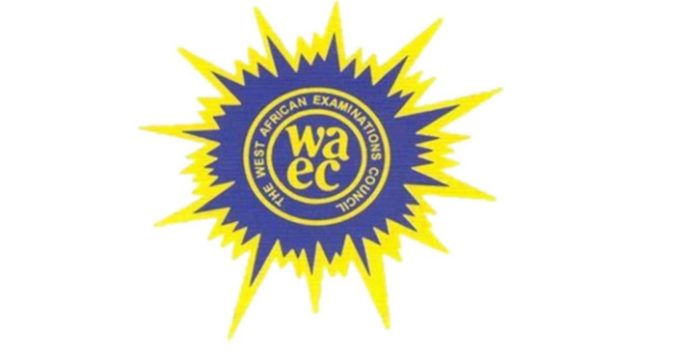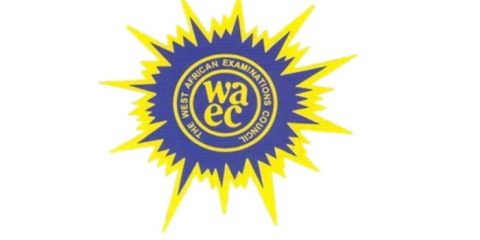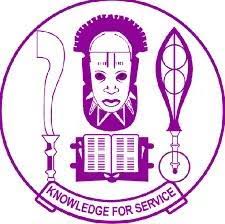
The West African Examinations Council has maintained that its plan to conduct the 2026 West African Senior School Certificate Examination for school candidates through a fully computer-based system remains firmly on track.
WAEC also assured that no candidate would be required to travel more than two kilometres from their location to take the examination.
This was contained in a statement delivered by the Head of the Nigeria National Office of WAEC, Dr Amos Dangut, during a press conference in Umuahia, Abia State, on Friday.
Dangut spoke in response to growing concerns among parents, schools, and education stakeholders regarding the transition to the Computer-Based WASSCE for the May/June diet.
It would be recalled that the House of Representatives, on November 13, asked the Federal Ministry of Education and WAEC to immediately suspend the implementation of the Computer-Based Test policy for the 2026 Senior Secondary School Certificate Examination.
The House also directed the Federal Ministry of Education to collaborate with states to include, in their 2026–2029 budgets, the recruitment of computer teachers, the construction of computer halls with internet facilities, and the provision of standby generators for all secondary schools in the country.
It similarly urged adequate provision of necessary facilities in private schools before the commencement of the policy in 2030.
However, Dangut said the briefing became necessary to speak on the Council’s preparedness to align with the Federal Government’s directive mandating the use of computer-based testing for the 2026 WASSCE.
He recalled the Federal Government’s order requiring all public examination bodies to migrate to digital assessment beginning in 2026. According to him, WAEC immediately initiated a series of measures, including testing digital examination platforms and evaluating the readiness of schools nationwide.
He explained that WAEC, in line with its mandate and test administration standards, undertook a nationwide assessment of all secondary schools to determine their ICT capacity, geographical suitability, and infrastructure for digital examinations.
The findings, he said, informed a new classification framework grouping schools into three categories to determine how candidates would be assigned centres.
“In line with the Council’s test administration policies, a review of the readiness of all secondary schools across the country, particularly their geographical locations and access to modern Information and Communications Technology facilities, led to the development of a framework classifying schools into three main categories,” he said.
“Based on this framework, the Council conducted a mapping of the schools and modalities for the conduct of CB-WASSCE in line with the mapping of the schools, thereby ensuring that the conduct of the CB-WASSCE will not put any candidate at a disadvantageous position.”
He emphasised that fears of candidates travelling long distances were taken into cognisance, noting that WAEC had completed its mapping strategy to guarantee convenience, equity, and safety.
“Therefore, I stand here today to assure the general public that the Council has developed a robust strategy to ensure that no candidate sitting the CB-WASSCE for School Candidates, 2026, will be disenfranchised.
“Furthermore, we have a firm plan to ensure that no candidate will have to travel for more than two kilometres to sit the examination. This is our commitment to access and equity,” he assured.
On the controversial review of the curriculum, Dangut stressed that curriculum development and approval remained the responsibility of the Federal Government, not WAEC.
He said the Council merely implements what is approved, consistent with legal and administrative frameworks.
“On the recent review of the Basic and Secondary School Curricula, the Council wishes to clarify that this initiative is a directive from the Federal Government.
“The Council operates strictly within the legal framework of its host country, and the Government is solely responsible for the development of curricula and the monitoring of their implementation,” he noted.
He outlined the new subject structure approved for the 2026 WASSCE, saying the five fields are Core, Science, Humanities, Business, and Trade Subjects. Dangut added that although Citizenship and Heritage Studies and Digital Technologies are now listed as compulsory core subjects, they will not be examined until 2028.
“The Government approved Core (Compulsory) subjects are: English Language, General Mathematics, Citizenship and Heritage Studies, Digital Technologies, and one Trade Subject. However, candidates will not be tested in Citizenship and Heritage Studies and Digital Technologies in 2026 and would therefore not be examined until 2028 upon full implementation of the revised and streamlined syllabus,” he said.
With this adjustment, he said candidates for the 2026 and 2027 examinations will sit only three core subjects: English Language, General Mathematics, and one Trade Subject, while selecting five or six electives, bringing their total subject load to eight or nine.
He also disclosed a major change to the Trade Subjects category, revealing that the number had been reduced from 26 to six, while some subjects were renamed but retained their existing curriculum content.
One of the new additions, Horticulture and Crop Production, he said, is derived from Agricultural Science and will have its own syllabus.
Addressing concerns about subject registration limits, Dangut reassured schools and parents that WAEC had not placed any restrictions on candidates choosing subjects across fields.
“Specifically, Science students will not be barred from taking Economics as an elective,” he said.
On continuous assessment, he announced that WAEC would extend the timeline for uploading Continuous Assessment Scores to allow schools to adjust to the new curriculum.
He urged schools to conduct the required minimum of three assessments for candidates taking new subjects to meet the CASS requirement.
“Furthermore, WAEC will extend the period for Continuous Assessment Scores upload to ensure they meet the CASS requirement,” he said.





![FUTES-IYIN Cut Off Mark 2025/2026 is Out [All Courses] FUTES-IYIN Cut Off Mark 2025/2026 is Out [All Courses]](https://myeduplug.com/wp-content/uploads/2025/10/FUTES-IYIN-4.jpeg)
![FUADSI Cut Off Mark 2025/2026 is Out [All Courses] FUADSI Cut Off Mark 2025/2026 is Out [All Courses]](https://myeduplug.com/wp-content/uploads/2025/10/FUADSI-2.jpeg)
![BUK Cut Off Mark 2025/2026 [All Courses] BUK Cut Off Mark 2025/2026 [All Courses]](https://myeduplug.com/wp-content/uploads/2025/01/BUK.jpeg)
![UNIMAID Cut Off Mark 2025/2026 [All Courses] UNIMAID Cut Off Mark 2025/2026 [All Courses]](https://myeduplug.com/wp-content/uploads/2025/01/UNIMAID-1.jpeg)









